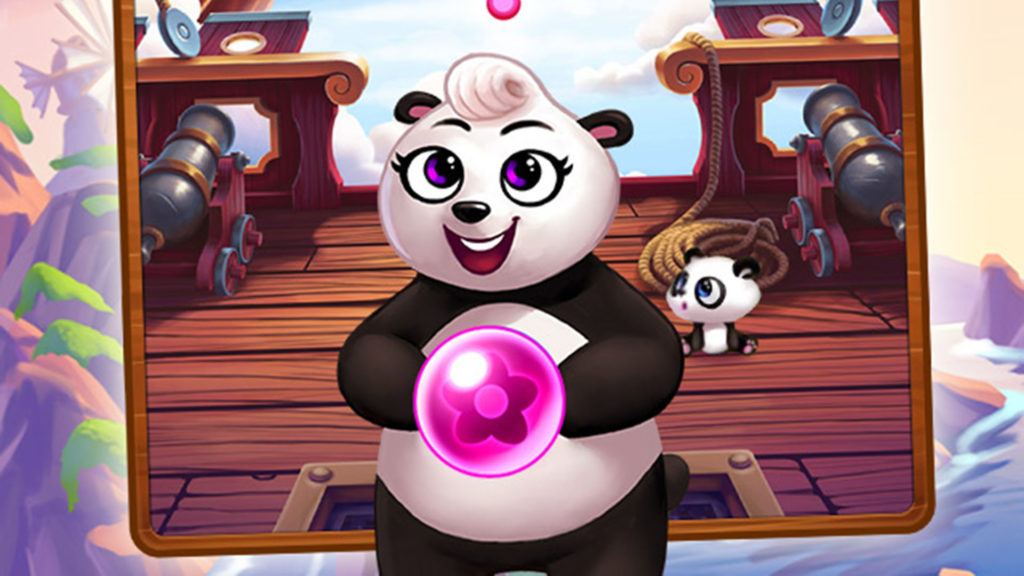The mobile games industry is a place of great opportunity from the perspective of SGN Games, according to its CEO Chris DeWolfe—especially since the company recently acquired mobile game developer, TinyCo. At the recent Casual Connect conference in San Francisco, DeWolfe talked to [a]listdaily about the recent acquisition of TinyCo, the value of licensed IP for games, and how VR looks to SGN.

How does the TinyCo acquisition fit into SGN’s vision?
We’re seeing massive consolidation in the mobile gaming space. There’s certainly room for some new entrants to come in. It’s pretty simple in economic terms. We’re seeing the industry grow by 20 percent, but it also consolidates for a bigger piece of a growing pie. That’s super interesting, but it also gets us into a new segment, the builder genre, or invest and express, where TinyCo is a leader using Hollywood-based IP. I don’t think we could have replicated that on our own.
What is the appeal of licensed IP?
I don’t think all licenses are alike. The really interesting thing about TinyCo is they had a unique take on the types of IP they would go after. It’s hardcore, rabid fans that want to watch a TV show or a movie and want to get immersed in the environment. They don’t get enough of it while they are watching TV or a movie, and they want to extend that immersion into playing a mobile game. That got us really excited. Their revenues—we think they’re going to do somewhere around $100 million this year—it’s a meaningful number, and we think it can get a lot bigger than that.
Why IP? Because you have to pay someone a licensing fee? User acquisition is tough for all you guys, it’s tough to get new players into your game—there’s a million new players coming into the App Store. IP helps you get more users, more quickly, and higher click rates that all accelerates. It’s a little bit substitutional for advertising costs. In some ways, it may be lower margin, in some ways it may be higher margin. It’s very nice to have a mix of the two.
When you look at the mobile market now, what worries you about its state? How would you fix the market?
I wish we could experiment with everything and try everything. I wish we could do midcore games, I wish we could do social casino, I wish we could do storytelling games. I think with the maturity of this market, you have to think about one thing that you do really well, and that you can be an expert in. Get really good at that, and then begin to try something new. For us, we always want to try something new. We want to do VR, we want to do AR, have a big R&D team, and at the end of the day, managing your resources is probably the most important thing.
When you look at the mobile game companies out there, which ones do you admire?
Everyone in this room probably admires Supercell. I don’t think we can learn enough from them or talk about them enough. They have maybe a couple of hundred people, they’ve sold their company twice, they’ve made plenty of money but they don’t seem to be worried about it. They’ve created hit games, they’ve created pretty original games, they’ve created brands in their own right. They’ve created games that work globally—probably the only Western game that actually works throughout Asia very well. I admire them a lot. I think EA’s done a very good job in the IP space.
How important is it for something to be global, when you’re thinking about IPs or building IPs?
At least in your portfolio, you have to think about it. If you have something like Family Guy it’s probably not going to do well in Asia, because they don’t know what Family Guy is for the most part. Then there’s other IP out there, like Marvel, that is very universal and works great everywhere. You need to have a good balance that works well in every country, and then you can think about what game mechanics work in which country. The US is very similar to Western Europe, and obviously Canada and Australia. You can’t even say “Asia” because China, Japan and Korea are so different. We’ve actually done pretty well in Japan. Over the next twelve months, we’re going to think a lot more about localizing in Japan, to the point where we may even change out a lot of our art.
Is VR going to be a big market for the types of games SGN is developing over the next few years?
I don’t know if it’s the next couple of years. My point of view is that VR would work better with big core games and console games than it would be for pure casual games, but I’m sure there will be great executions on the casual side. There are still a couple of big problems. I still feel the latency and the technology may be an issue. Whenever I put on any of the headgear or the wearables, I still feel nauseous after ten minutes. I still think there’s a critical mass of people who just don’t feel good putting on that equipment. It’s got to get to a different form factor, it’s got to get to critical mass before a lot of money goes into it. There’s just not a lot of great titles out there and I don’t think people are going to invest in those titles until the problems are solved. I think it will happen, but people said 18 months 18 months ago. To me, it’s more like 36 or 48 months from now.
How would you categorize the types of players you are appealing to? Are they casual or midcore gamers?
That’s a big question. For SGN, in the past, it’s been more casual gamers, more female skewed. We have created games for more people that have typically been under-represented in the marketplace, like a female demographic for casual puzzle games that has deep gameplay with thousands and thousands of levels. You don’t have to invest forty-five minutes on your console. That’s what we’ve been doing on the SGN side.
The TinyCo side has been much more male oriented, all of their titles have been male-oriented. Some of the new titles which will be coming out will have more of a female skew to them. The majority of people playing games out there don’t self-identify themselves as gamers. It’s interesting because everyone has a certain amount of excess time where they just want to get away from all their problems, get away from all their stresses, and just hangout, pick up and play and escape the world. Those are the types of games we’ve traditionally made.

